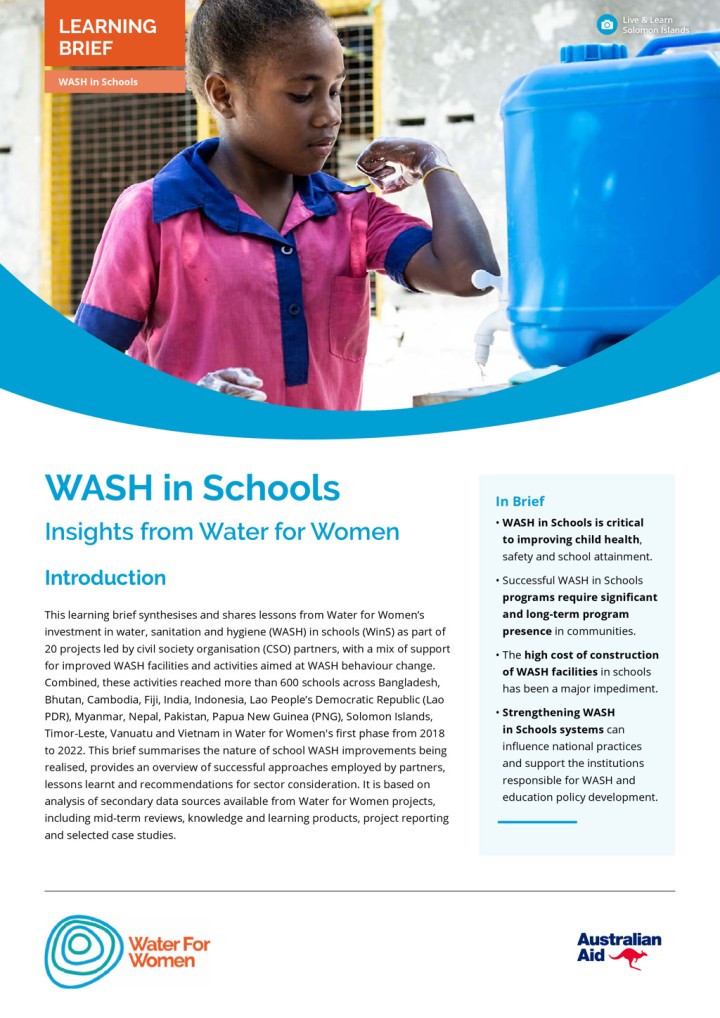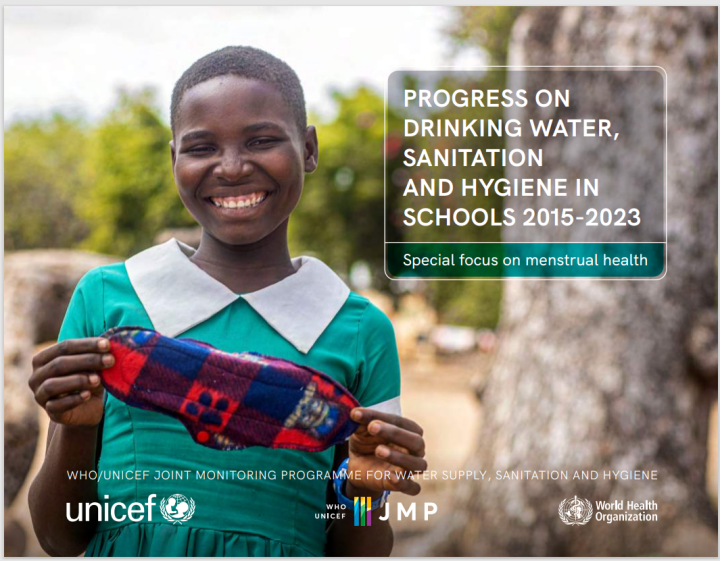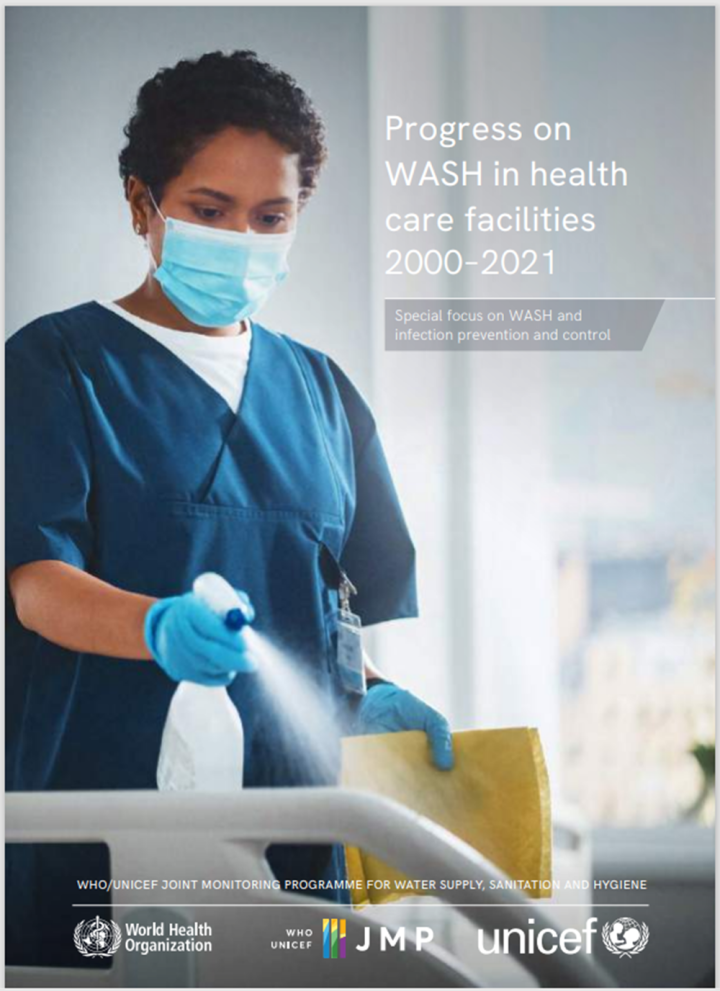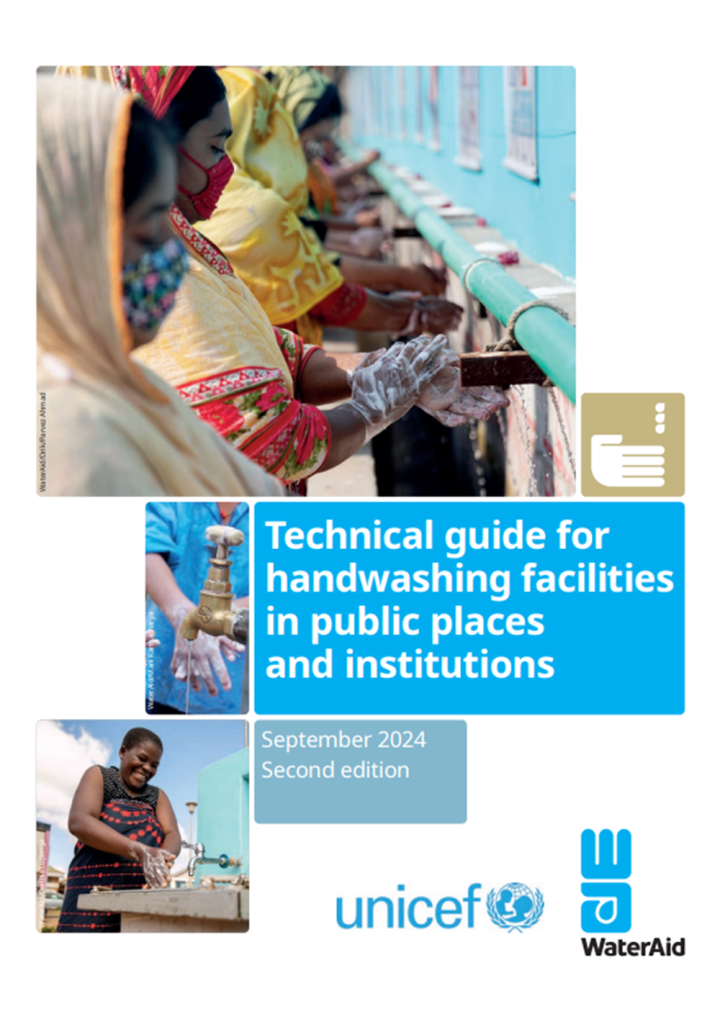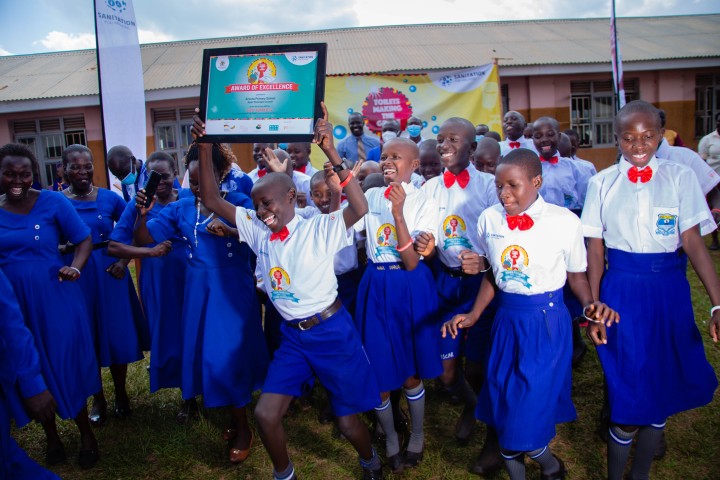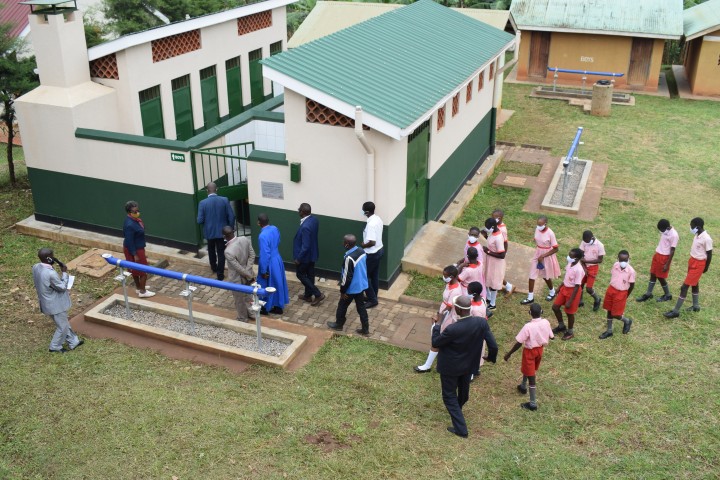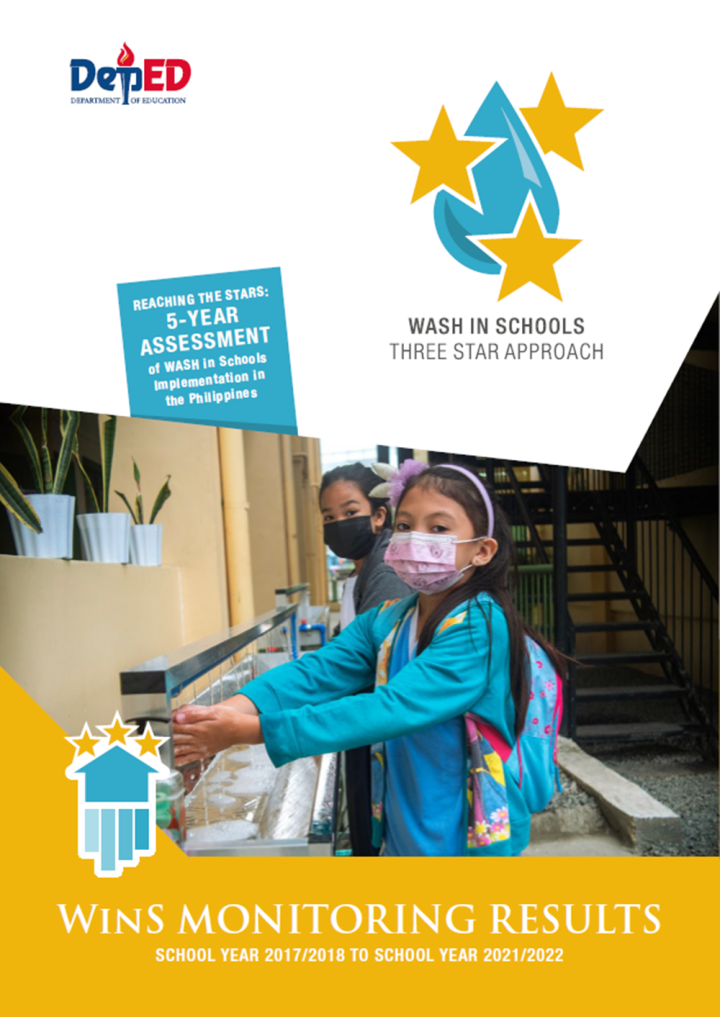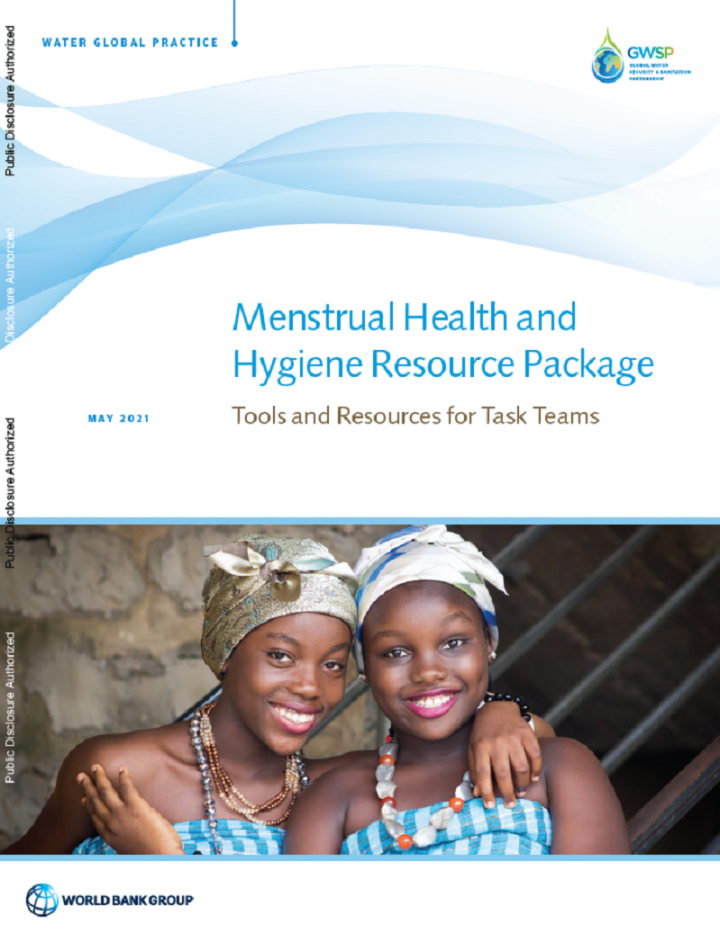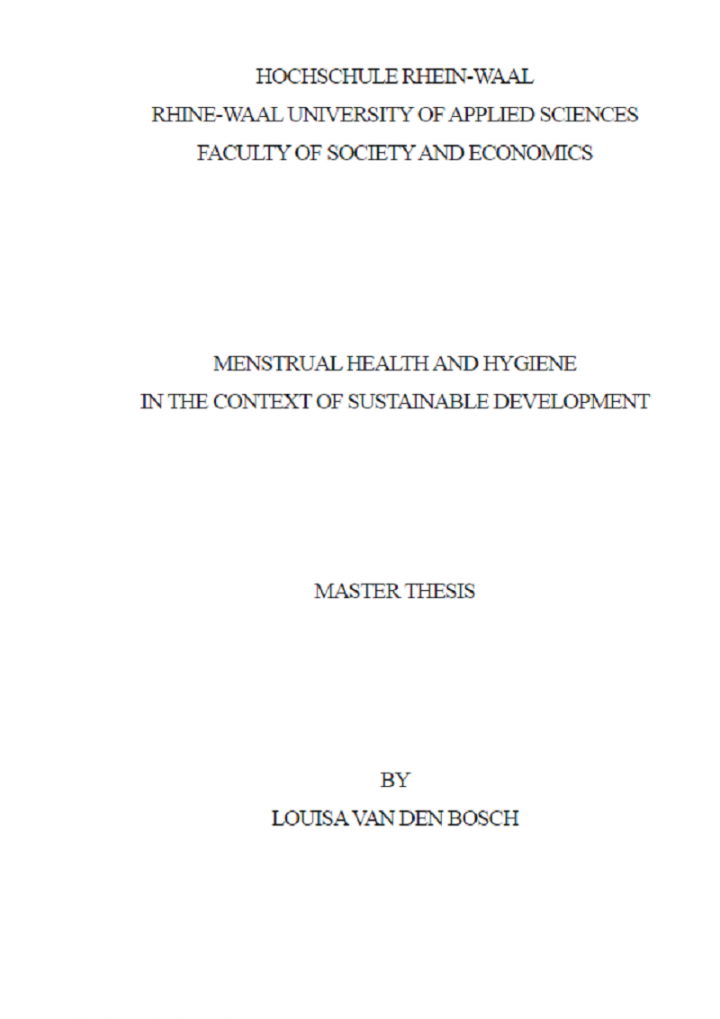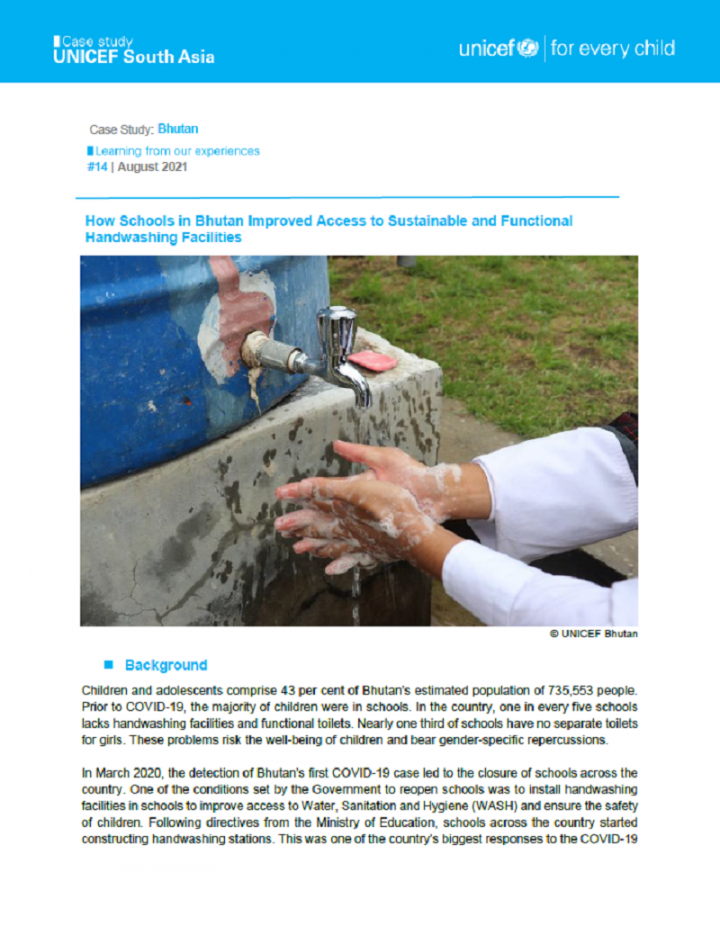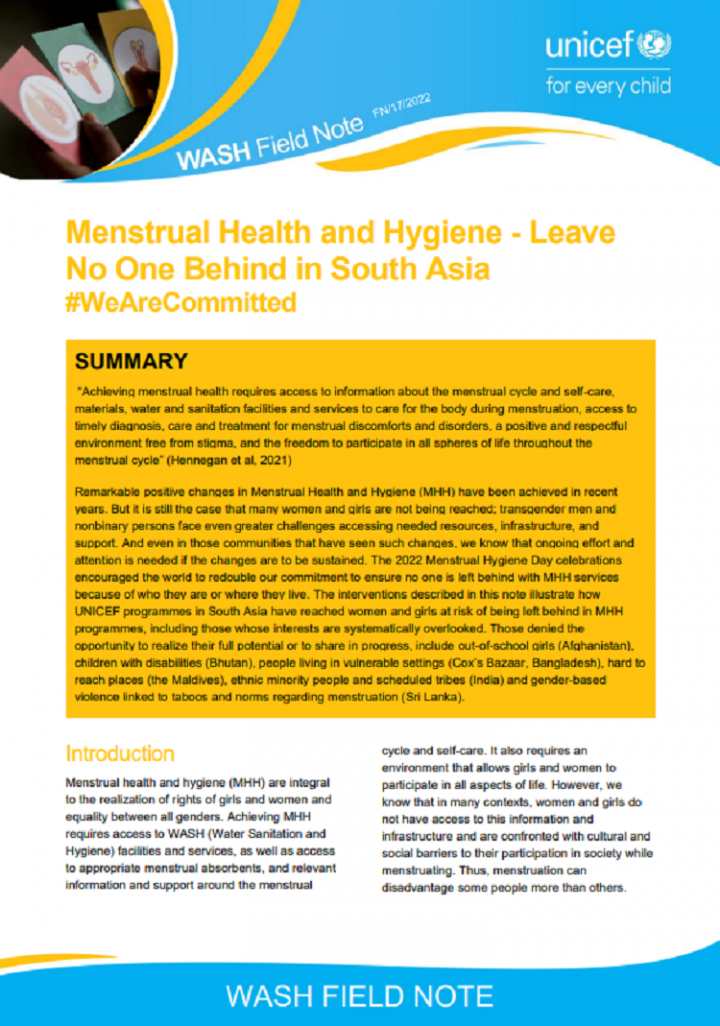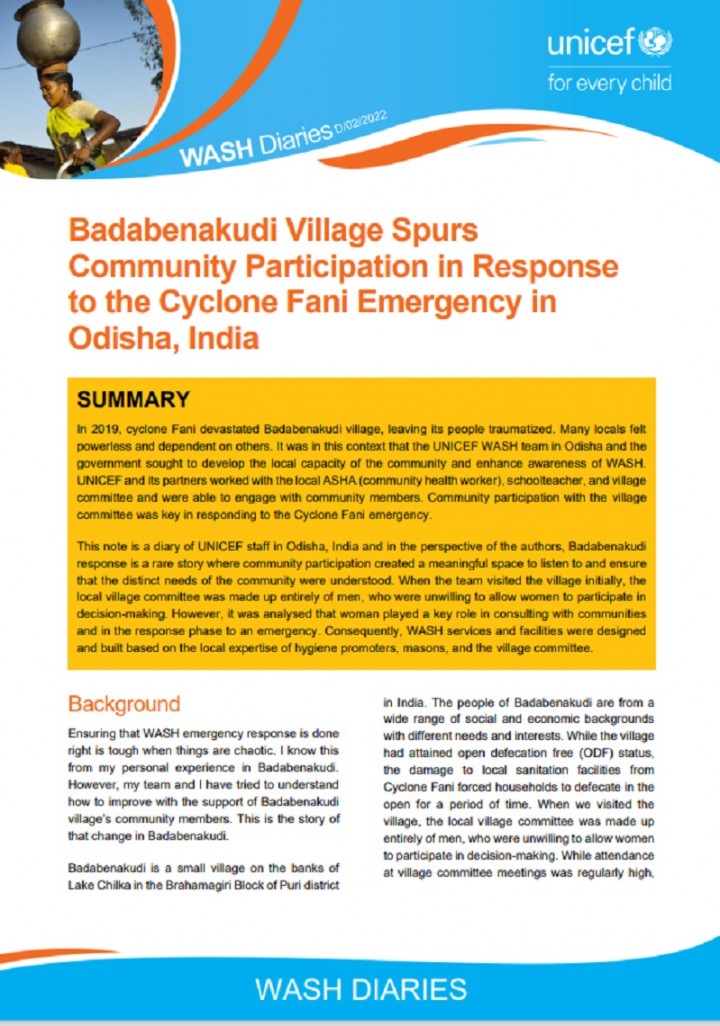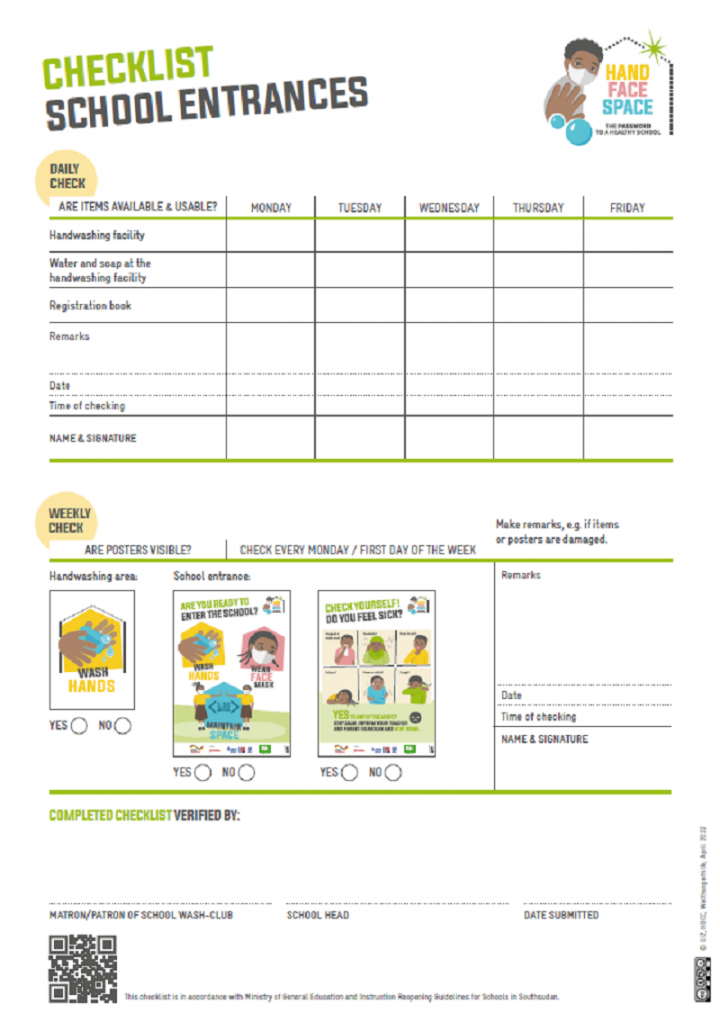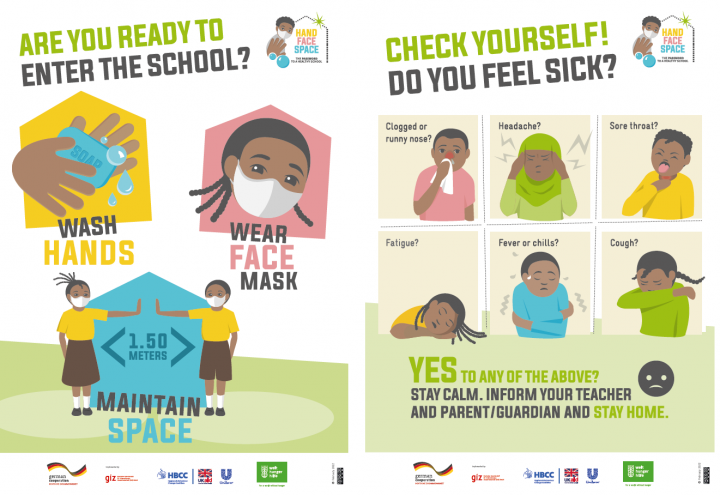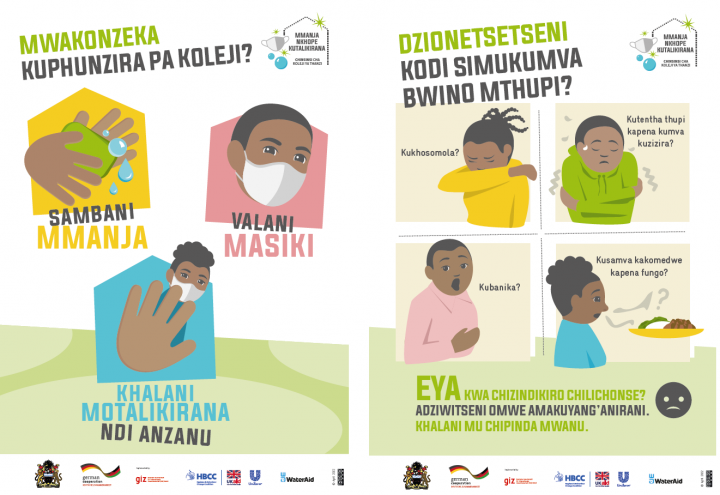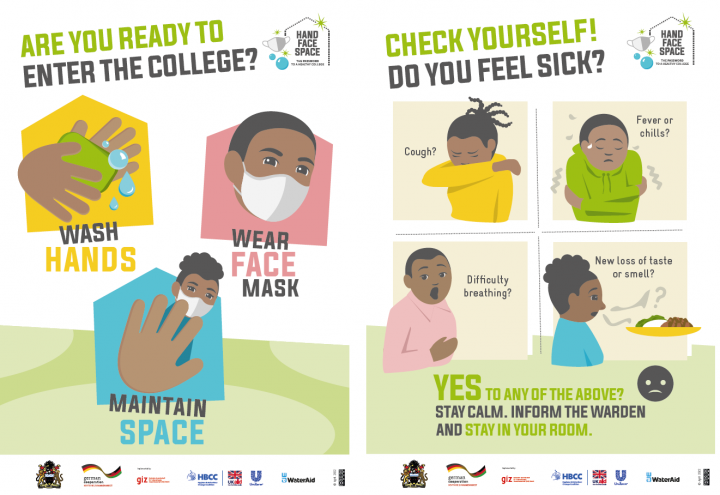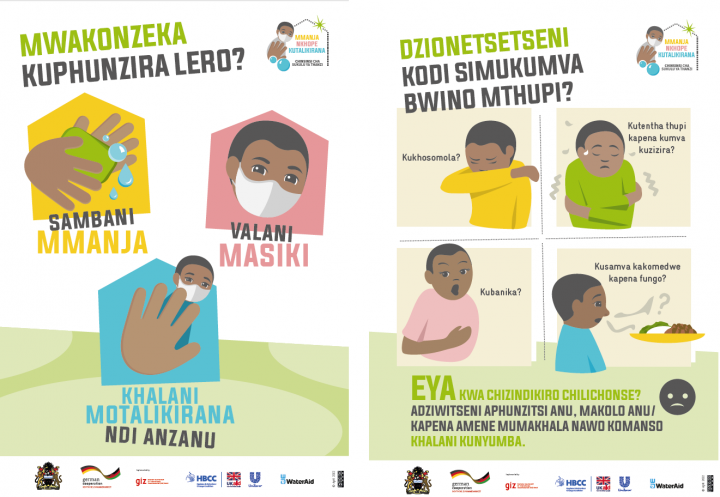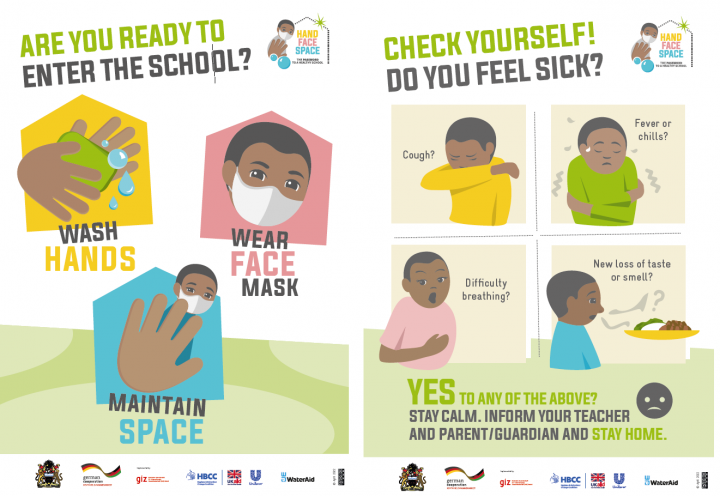Water for Women (2023) WASH in Schools Insights from Water for Women
This learning brief synthesises and shares lessons from Water for Women’s investment in water, sanitation and hygiene in schools as part of 20 projects led by civil society organisation partners, with a mix of support for improved WASH facilities and activities aimed at WASH behaviour change. Combined, these activities reached more than 600 schools across Bangladesh, Bhutan, Cambodia, Fiji, India, Indonesia, Lao People’s Democratic Republic (Lao […]
WHO & UNICEF (2024) Progress on drinking water, sanitation and hygiene in schools 2015-2023: special focus on menstrual health
The report underscores the urgent need for global action to improve menstrual health and hygiene in schools. By addressing these issues, every schoolgirl can manage her menstruation with dignity, safety, and confidence. The report also includes progress on broader access to water, sanitation, and hygiene in schools. Today, 1 in 5 children (447 million) still lack basic drinking water services at their school, 1 in 5 […]
WHO & UNICEF (2022) Progress on WASH in health care facilities 2000-2021: Special focus on WASH and infection prevention and control
The World Health Organization (WHO) and the United Nations Children’s Fund (UNICEF), through the WHO/ UNICEF Joint Monitoring Programme for Water Supply, Sanitation and Hygiene (JMP) release progress updates on WASH in households, WASH in schools and WASH in health care facilities every two years. This 2022 update presents national, regional and global estimates for WASH in health care facilities up to the year 2021, […]
Om Prasad Gautam, Babazile Bhembe, Lindsay Denny, Lara Kontos, Joana Da Cunha Forte, Golam Muktadir and John Knight (2024) Technical guide for handwashing facilities in public places and institutions
Hand hygiene is a key line of defence for many diseases, including diarrhoea and cholera. To maintain good hand hygiene and get more people into the habit of regularly washing their hands, public handwashing facilities with soap and water are essential. For many years, we have worked with governments, UNICEF and other organisations to install handwashing facilities in a range of public places and buildings, including […]
Sanitation for Millions, German Toilet Organisation (2024) Service Offer: Toilets Making the Grade® – A School Competition for Self-driven Water, Sanitation, and Hygiene Improvements
This service offer contributes to the achievement of multiple Sustainable Development Goals (SDGs), particularly SDG 6.2 (equitable sanitation), SDG 3 (good health), SDG 4 (quality education), and SDG 5 (gender equality). The Toilets Making the Grade® (TMG) competition helps schools to address sanitation and hygiene challenges through self-assessment, guiding them to meet global and national standards like the 3-star approach. In a playful way, students and […]
Sanitation for Millions (2024) Service Offer: Construction or Rehabilitation of WASH Infrastructure in Schools
This service offer contributes to the achievement of multiple Sustainable Development Goals (SDGs), particularly SDG 6.2 (equitable sanitation), SDG 3 (good health), SDG 4 (quality education), and SDG 5 (gender equality). It focuses on the construction and rehabilitation of water, sanitation, and hygiene (WASH) infrastructure in schools. It provides essential background information, critical minimum standards, and the necessary steps for implementation. The content is informed by […]
Department of Education Philippines (2023) WinS Monitoring Results - School year 2017/2018 to school year 2021/2022
Water, Sanitation and Hygiene (WASH) in Schools program in the Philippines has improved significantly over the past years of implementation and contributed to the health and well-being of school children. The program started in 2016 through the DepEd Order No. 10 S-2016 titled “Policy and Guidelines for the Comprehensive WASH in Schools (WinS) Program”. This policy has able to set specific parameters and standards for […]
World Bank Group (2021) Menstrual health and hygiene resource package: tools and resources for task teams
The purpose of this resource package is to assist World Bank task teams in ensuring that their projects are inclusive and responsive to the needs of women and girls. The tools included in this package are practical and user-friendly and guide task teams on how to design and monitor effective, inclusive, and sustainable menstrual health and hygiene (MHH) initiatives as part of their water supply, […]
Louisa van den Bosch (2023) MENSTRUAL HEALTH AND HYGIENE IN THE CONTEXT OF SUSTAINABLE DEVELOPMENT
The biological process of menstruation affects around a quarter of the world's population. Nevertheless, it is surrounded by secrecy and taboos, and encompasses various sociocultural and structural challenges. These and their impacts negatively affect the lives of menstruators restricting their freedom, choices, participation, and mobility. The concept of Menstrual Health and Hygiene (MHH) aims to tackle these issues so menstruators can lead a dignified and […]
UNICEF (2021) How Schools in Bhutan Improved Access to Sustainable and Functional Handwashing Facilities
Children and adolescents comprise 43 per cent of Bhutan’s estimated population of 735,553 people. Prior to COVID-19, the majority of children were in schools. In the country, one in every five schools lacks handwashing facilities and functional toilets. Nearly one third of schools have no separate toilets for girls. These problems risk the well-being of children and bear gender-specific repercussions. In March 2020, the detection of […]
(2022) Menstrual Health and Hygiene - Leave No One Behind in South Asia
“Achieving menstrual health requires access to information about the menstrual cycle and self-care, materials, water and sanitation facilities and services to care for the body during menstruation, access to timely diagnosis, care and treatment for menstrual discomforts and disorders, a positive and respectful environment free from stigma, and the freedom to participate in all spheres of life throughout the menstrual cycle” (Hennegan et al, 2021) Remarkable […]
(2022) Fit for School Initiative for Africa - South Sudan materials
Collection of Fit for School Initiative for Africa materials, for South Sudan
(2022) Fit for School Initiative for Africa - Malawi materials
Collection of Fit for School Initiative for Africa materials, for Malawi.
UNICEF (2022) Badabenakudi Village Spurs Community Participation in Response to the Cyclone Fani Emergency in Odisha, India
In 2019, cyclone Fani devastated Badabenakudi village, leaving its people traumatized. Many locals felt powerless and dependent on others. It was in this context that the UNICEF WASH team in Odisha and the government sought to develop the local capacity of the community and enhance awareness of WASH. UNICEF and its partners worked with the local ASHA (community health worker), schoolteacher, and village committee and […]
Fit for School Initiative for Africa (2022) WinS COVID-19 Checklists - South Sudan
WASH in Schools Checklists to manage the spread of COVID-19 in schools. Checklist for 1) SCHOOL ENTRANCES, 2) CLASSROOMS, 3) TOILETS
Fit for School Initiative for Africa (2022) WinS COVID-19 Posters - South Sudan (English)
WASH in Schools Posters to manage the spread of COVID-19 in schools and colleges
Fit for School Initiative for Africa (2022) WinS COVID-19 posters Malawi - College (Chewa)
WASH in Schools Posters to manage the spread of COVID-19 in colleges.
Fit for School Initiative for Africa (2022) WinS COVID-19 posters Malawi - College (English)
WASH in Schools Posters to manage the spread of COVID-19 in colleges.
Fit for School Initiative for Africa (2022) WinS COVID-19 posters Malawi - Primary school (Chewa)
WASH in Schools Posters to manage the spread of COVID-19 in primary schools.
Fit for School Initiative for Africa (2022) WinS COVID-19 posters Malawi - Primary school (English)
WASH in Schools Posters to manage the spread of COVID-19 in primary schools.
